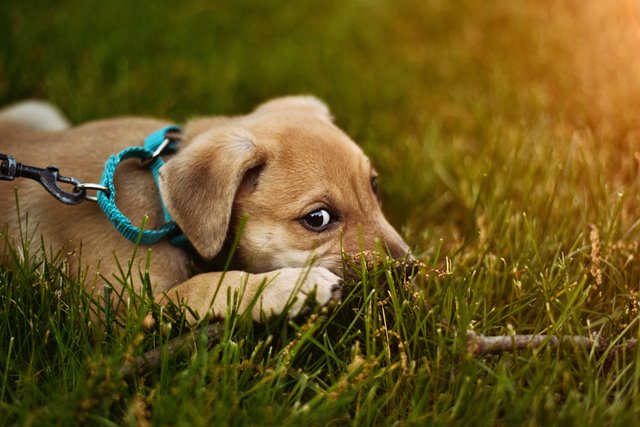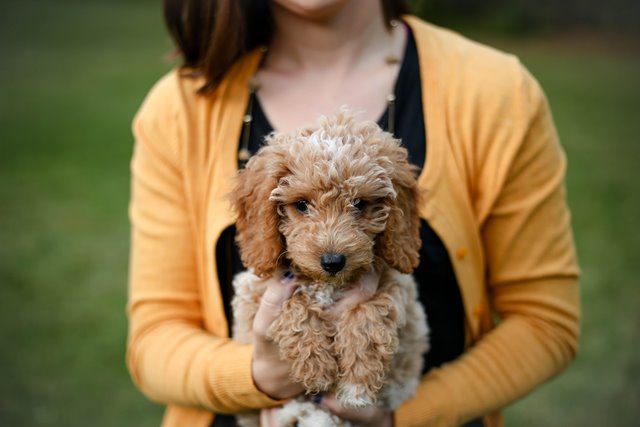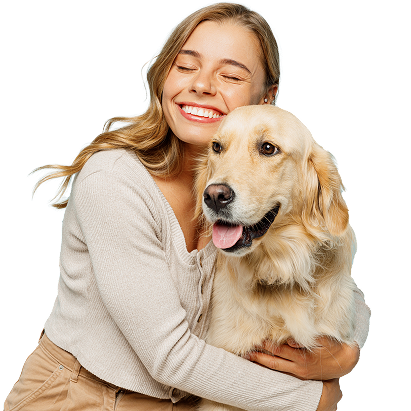New puppy: Exercise and Socialisation
Exercise and socialisation tips for your new puppy Few moments are more exciting for new puppies and their owners than their first ‘walk’. Not only is this a chance to get outside and explore the big wide world, but it’s also a chance to finally interact with other dogs and children (and maybe chase the […]
Exercise and socialisation tips for your new puppy
Few moments are more exciting for new puppies and their owners than their first ‘walk’. Not only is this a chance to get outside and explore the big wide world, but it’s also a chance to finally interact with other dogs and children (and maybe chase the occasional squirrel!) However, all these new experiences can be quite overwhelming for both puppy and owner, so here are some tips to make these early adventures as safe and enriching as possible.
When can I take my puppy out for the first time?
You should not take your new puppy outside in public areas until they have completed their full vaccination course: your vet will advise you on how long you should wait before taking your puppy outside. Normally this will be one to two weeks after they have completed their course of primary vaccinations, however be sure to follow the specific advice provided by your vet, as different types of vaccination have different recommendations!
Before their first walk, you can prepare at home by getting your puppy used to wearing their collar and being on the lead. If you have a garden then you can take them for a practice walk, but don’t worry if not – you can still get them used to wearing the collar around the house. This will be one less thing to worry about when the time comes for their first walk in public.
Things to remember…
Any time you walk your dog, be sure to remember these essentials!
- Dog collar and tag – With very few exceptions, even if they are microchipped, it is a legal requirement for any dog to wear a collar and tag with their owner’s name and address on it whenever they are out in a public place.
- Biodegradable Poo bags – Cleaning up after your dogs is not only a legal requirement, but it keeps the park free from mess for other dog walkers!
- Water bottle/bowl – Dehydration can be a big problem, especially in the summer months; so take a water bowl with you and offer your dog a drink at regular intervals throughout their walk.
- Healthy Treats – The park is an exciting place for dogs of all ages. Having some treats with you may help with recall if your dog is off the lead, and will allow you to reward your dog for any good behaviour.
Where are the best places to walk your puppy?
Whilst we always recommend sticking to safe and secure areas for dog walks, this is particularly important for puppies. Start off in a place that you know well, and try to choose somewhere away from the road, with well-maintained fences – just in case your puppy manages to slip their lead!
How long should you walk your puppy for?
It’s important to remember that young puppies don’t need as much exercise as adult dogs. Their immune systems aren’t fully developed yet, and over-exercise could cause them to get ‘run-down’ and even make them unwell. Moreover, too much exercise could put undue strain on their under-developed joints and can cause growth problems, and lead them to develop arthritis later in life.
For puppies, a good rule-of-thumb is a ratio of 5 minutes of exercise per month of age, twice a day. Once they are fully grown, they can start to go on much longer walks. (Note: different breeds of dog grow at different rates. In general, smaller breeds grow faster and reach adult-size at a younger age than larger breeds. Your vet will be able to advise you on when your dog is fully grown).
**Remember – don’t walk your dog on a full stomach as this can lead to bloating and various other issues**
Longer term – new places, new people, and other dogs
Once they start going out for walks, your dog will, of course, start exploring new places, meeting new people, and making friends with other dogs. Socialisation in the early months of a puppy’s life is absolutely critical. You can get specific advice on socialising and training your puppy from books and puppy classes, but here are some general tips.
- New places – As your puppy becomes more confident, start introducing them to new places. Vary the location of their walks to get them used to different types of environment – the woods or the beach can provide a great alternative to the park. Once you think they are ready, take them for a walk through town. Let them explore new objects like rubbish bins, traffic signs and benches. The new sights and sounds might be a bit intimidating at first (especially cars and crowds of people), but it’s better to get them used to the hustle and bustle now while they are young and curious.
- Other dogs – Once your dog is fully vaccinated it is safe for them to start interacting with other dogs, and in fact, this is crucial for their socialisation and development. The park, puppy socialisation classes, and even the vets are great places for them to make friends. Many vet practices now run free ‘puppy parties’ for their clients, which is not only a great opportunity to meet new friends, but also a chance to get your puppy used to going to the vets without any nasty injections!
Try to introduce them to other dogs in a relaxed environment, and be sure to keep some treats to hand to distract them if they get over-excited or anxious. Keep a close eye on early interactions, and be prepared to intervene if there are any signs of aggression. Try to introduce them to dogs of all sizes and ages, so they can learn how to interact with younger energetic dogs, and older dogs who might be a little more relaxed. The more social interactions your puppy has in this early period, the better equipped they will be to deal with varied social situations in the future.
- New people – You want your puppy to meet lots of different people during the early months of their lives. Introduce them to people of all ages (including children), and make sure that they get used to both males and females. If possible, introduce them to people in wheelchairs, people riding bicycles or skateboards, and people pushing buggies or shopping trolleys. In much the same way as with meeting other dogs, variety in these early interactions will prepare your puppy to feel confident around all sorts of people and in all sorts of situations in the future. Try to keep these interactions relaxed, and be sure to keep an eye on your puppy’s body language, so that you can intervene if they are becoming overwhelmed.
The first few months with your new puppy can be incredibly fun and exciting, but this time is also extremely important. Start out nice and slowly, and try to make sure that every new experience and interaction that your puppy has is a positive one. By ensuring that they are introduced to a wide range of different places, people, and dogs, you can help them to form positive associations and enable them to grow up into happy adult dogs, with good social skills!




